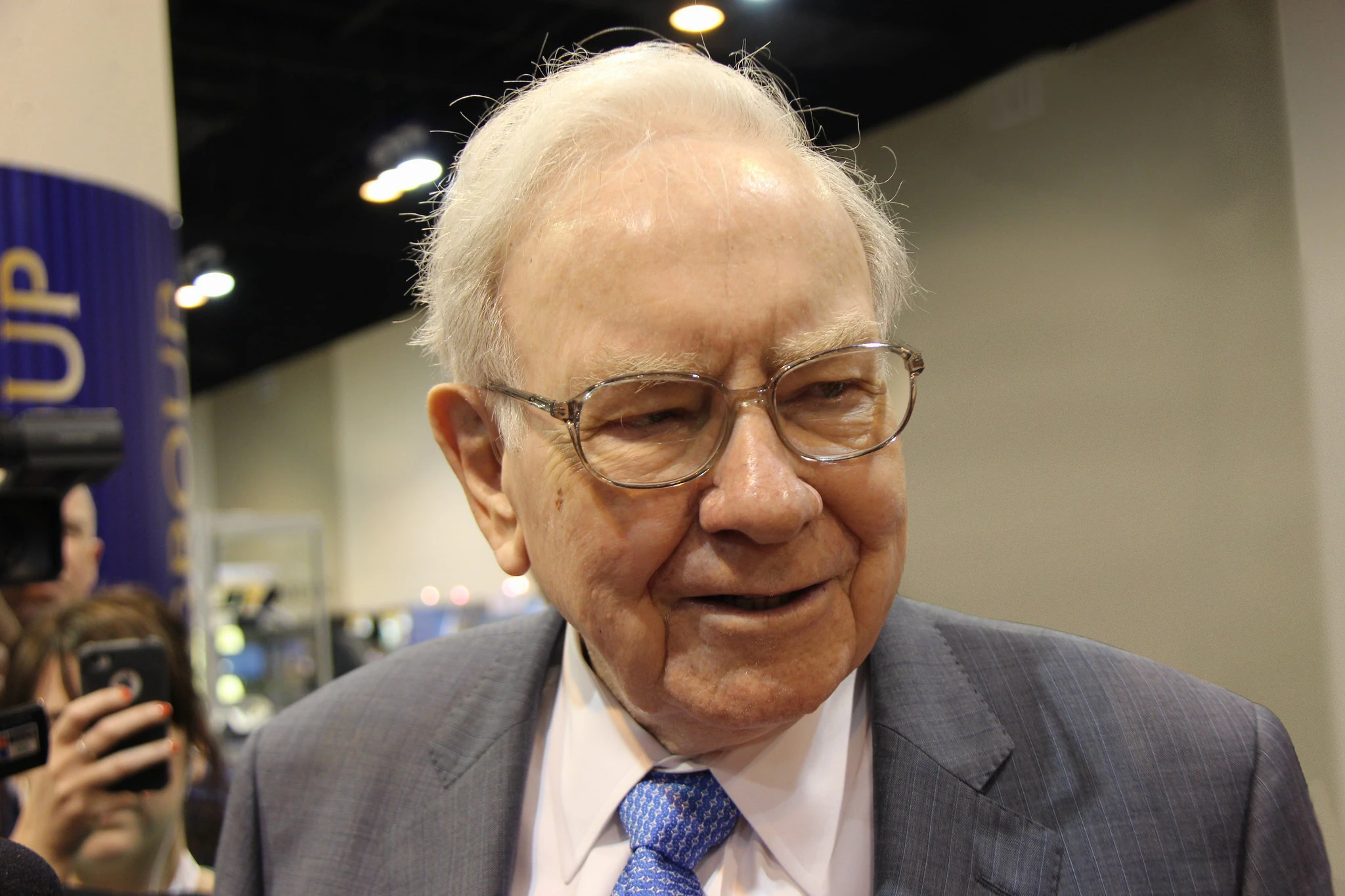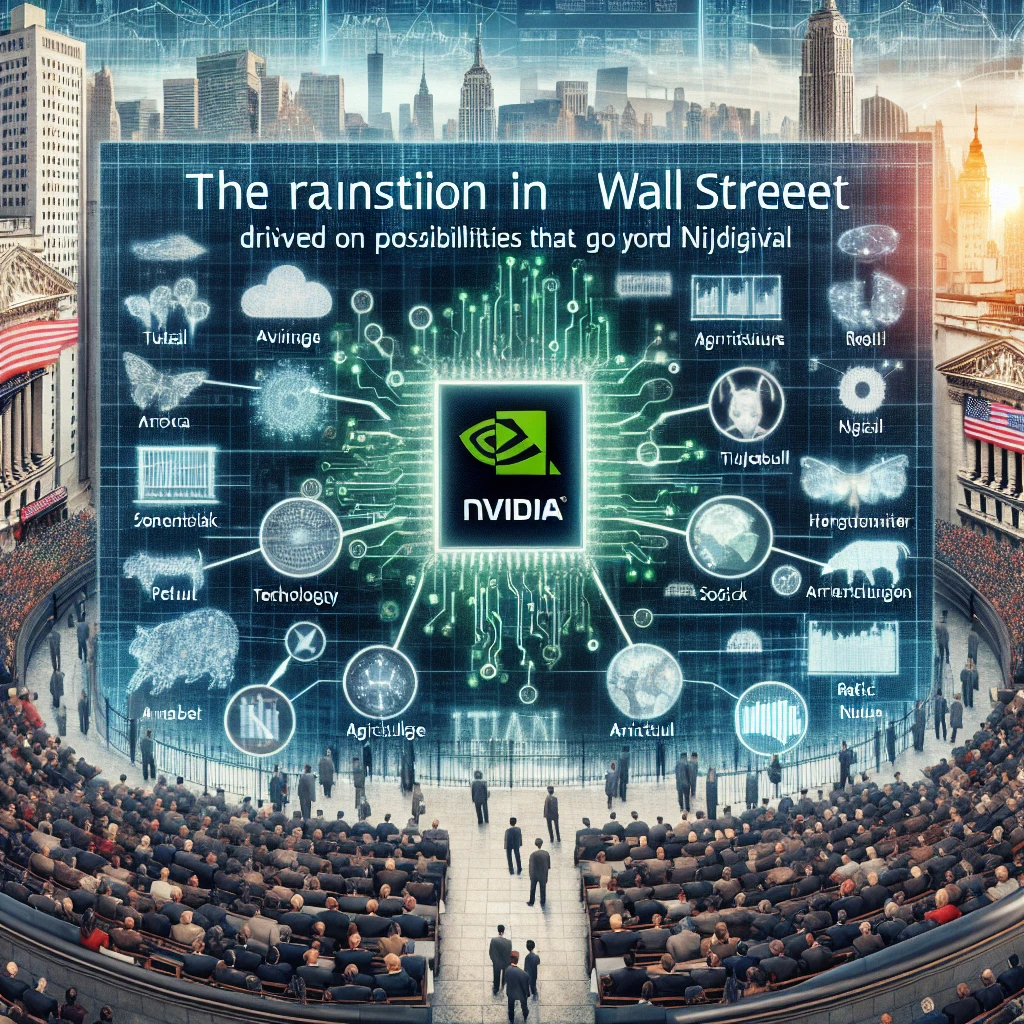
Alok Sama, former CFO of SoftBank, discusses tech valuations, visionary investing, and the illusion of power in the tech bubble, offering insights from his book "The Money Trap."

This podcast episode from Motley Fool covers critical discussions on banking strategies, Tesla's innovative Cybercab launch, and the impact of recent earnings reports from Delta, Pepsi, and Domino's. It also delves into Google's regulatory challenges amid AI advancements and highlights investment insights for Netflix and Meta.

This text highlights Warren Buffett's successful investment strategy at Berkshire Hathaway, which emphasizes steady growth and avoids market trends like AI stocks. It explores how Amazon, Coca-Cola, and Apple, key holdings in Berkshire's portfolio, are innovatively incorporating AI into their business models, demonstrating the conglomerate's ability to benefit from technological advancements while maintaining its core investment principles.

This article explores the resurgence of stock splits, detailing three companies—Broadcom, Nvidia, and Super Micro Computer—with substantial growth potential post-split. It highlights each company's strengths and future prospects, while also introducing The Motley Fool Stock Advisor's "Double Down" alerts for seizing significant investment opportunities.

This Motley Fool podcast episode delves into the impacts of Hurricane Helene, updates from Meta and OpenAI, and explores how companies like Vail Resorts, Costco, and Accenture are navigating current challenges and opportunities. Featuring insights from Braze CEO Bill Magnuson on leveraging AI for customer engagement, the episode also spotlights stocks like Carnival Cruise Lines and Visa amidst market dynamics and regulatory scrutiny.

In 2024, AI and stock splits have shaped the U.S. stock market, with key players like Nvidia and Broadcom completing significant forward splits. As they make way for Super Micro Computer and Lam Research, investors are urged to capitalize on emerging opportunities, given AI's transformative economic impact and the potential for substantial investment returns.

The podcast delves into Reddit's remarkable user growth, strategic advertising, and international expansion under CEO Steve Huffman. Key highlights include the role of improved user experiences, AI-driven machine translation, and unique audience targeting in driving Reddit's success. The conversation also touches on Reddit's financial trajectory towards profitability and its mission to foster community and meaningful connections.

Stan Druckenmiller strategically shifts his investment focus from tech giants to high-yield dividend stocks, capitalizing on market conditions and Federal Reserve rate cuts, while highlighting potential high-growth investment opportunities through "Double Down" stock recommendations.

This text advocates for investing in Alphabet over Nvidia, citing Alphabet's strategic structure, long-standing AI expertise, and undervalued stock as compelling reasons. It underscores Alphabet's resilience and potential for growth in the AI sector, presenting it as a promising investment opportunity.

CrowdStrike remains resilient despite a recent software glitch, maintaining strong growth through customer acquisition and diverse security offerings. The financial impact appears minimal, presenting a potential investment opportunity as the company continues to lead in technology growth stocks. Consider a dollar-cost averaging strategy to capitalize on future growth amidst favorable interest rate trends.

This article explores the impact of AI advancements, particularly through ChatGPT, on the stock market, highlighting key investment opportunities in Nvidia, Alphabet, Meta Platforms, and Amazon within the "Magnificent Seven" tech stocks. It underscores their strategic roles in AI development and potential for substantial returns, as identified by the Motley Fool Stock Advisor.

Explore how the S&P 500's leading companies—Apple, Microsoft, Nvidia, Alphabet, and Amazon—are leveraging artificial intelligence to drive growth, significantly shaping the index's performance. Discover investment opportunities through "Double Down" stock recommendations for potential high returns.

The text highlights three emerging tech companies—SoundHound AI, SentinelOne, and AppLovin—as potential future industry leaders, each leveraging innovative technologies to drive growth and capture new markets.

Palantir Technologies' stock surged in 2024, driven by its innovative AI tools and upcoming inclusion in the S&P 500, marking its growing market relevance. While tackling challenges like high stock-based compensation and competition from major tech players, Palantir's expansion into AI software for military and private sectors presents promising growth potential for investors.

The text explores the trend of stock splits among leading AI companies, highlighting potential candidates ASML and Equinix due to their growth in the AI market. It explains the investor appeal of stock splits and provides investment insights, including the potential returns of past Motley Fool recommendations.

Microsoft is securing diverse energy sources, including nuclear and renewable, to power its expanding cloud and AI operations, ensuring sustainable growth and offering investment opportunities in its energy partners.

The text explores Cathie Wood's optimistic vision for Tesla, highlighting its AI and self-driving technology as key growth drivers, while also addressing the challenges Tesla faces in the EV market and the ambitious nature of Ark Invest's future stock price projections.

The text explores the strategy of stock splits by growth companies like Nvidia and Broadcom, which aim to make shares more affordable and attract investors. It delves into each company's recent stock split, growth potential, and market challenges, emphasizing Nvidia's advancements in GPU architecture and Broadcom's AI and strategic partnerships. The text also provides investment insights, referencing The Motley Fool's Stock Advisor for guidance.

Explore the potential of DraftKings and Palantir Technologies as promising growth stocks under $100, capitalizing on expanding markets in sports betting and AI-driven decision-making, while considering expert investment advice.

The article explores Snowflake's strategic shift towards AI investments, highlighting CFO Mike Scarpelli's cautious approach to expensive GPU purchases until revenue justifies them. This prudent strategy contrasts with the typical aggressive spending in AI, offering potential for improved efficiency and growth. The discussion also compares Snowflake's situation to Meta Platforms' successful focus on efficiency, suggesting potential for future shareholder gains.

Microsoft balances its significant investments in AI infrastructure with shareholder rewards by boosting dividends and launching a $60 billion stock buyback. While past buyback efforts have had little impact on stock prices, the company's future growth hinges on capitalizing on AI opportunities through Azure and product integrations like Microsoft 365 and GitHub. Investors should weigh these developments alongside expert stock recommendations.

Super Micro Computer faces significant stock declines due to financial disappointments, accounting allegations, and report delays, but remains optimistic about future growth driven by AI innovations.

The Federal Reserve's rate cut could intensify competition in the AI sector, challenging smaller companies like SoundHound AI, which struggles to match the aggressive innovation spending of larger tech giants.

Nvidia's stock performance, despite strong operational gains in the AI sector, faces challenges due to market skepticism about long-term momentum and monetization potential. The company's speculative nature and reliance on AI software sector growth impact its ability to reach higher stock prices.

The rewritten text explores Broadcom's substantial growth potential in the AI sector, highlighting its strategic positioning in networking components and custom AI chip design. Despite competition, Broadcom is poised for significant opportunities and growth, making it a compelling investment prospect, though other stocks may currently offer better returns according to The Motley Fool's recommendations.

Explore the strategic approaches of semiconductor giants Nvidia and Broadcom as they capitalize on the booming AI market, with a focus on their hardware and software innovations, financial performance, and investment potential.

The text outlines Microsoft's recent 10.7% dividend increase and a $60 billion share buyback program, emphasizing the sustainability of these financial moves due to the company's strong earnings growth and robust balance sheet. It also highlights potential cash flow concerns from heavy AI investments, which may limit the extent of share repurchases. While the dividend increase benefits long-term shareholders, newer investors should consider Microsoft's growth potential driven by AI advancements. The Motley Fool suggests exploring other stocks with potentially higher returns.

The text explores Wall Street's enthusiasm for AI investments, highlighting Nvidia's impressive stock growth alongside potential risks and the shift of prominent investors towards more reasonably priced AI stocks like Super Micro Computer and Microsoft. It emphasizes Supermicro's adaptability to rising AI infrastructure demand and Microsoft's strong position in cloud computing and AI, presenting both as appealing investment opportunities for retail investors.

Super Micro Computer has outpaced Nvidia in stock performance, achieving a 188% surge in the first half of the year. Despite recent challenges, its innovative direct liquid cooling technology for data centers positions it for significant growth. With a stock split on the horizon, analysts anticipate a 90% rise in its value within the year.

In 2024, the interplay of AI advancements and strategic stock splits has significantly influenced market dynamics, with billionaire investors shifting focus from high-profile companies like Nvidia to under-the-radar opportunities in Sony Group and Cintas, driven by concerns over market bubbles, insider actions, and increased competition.





























